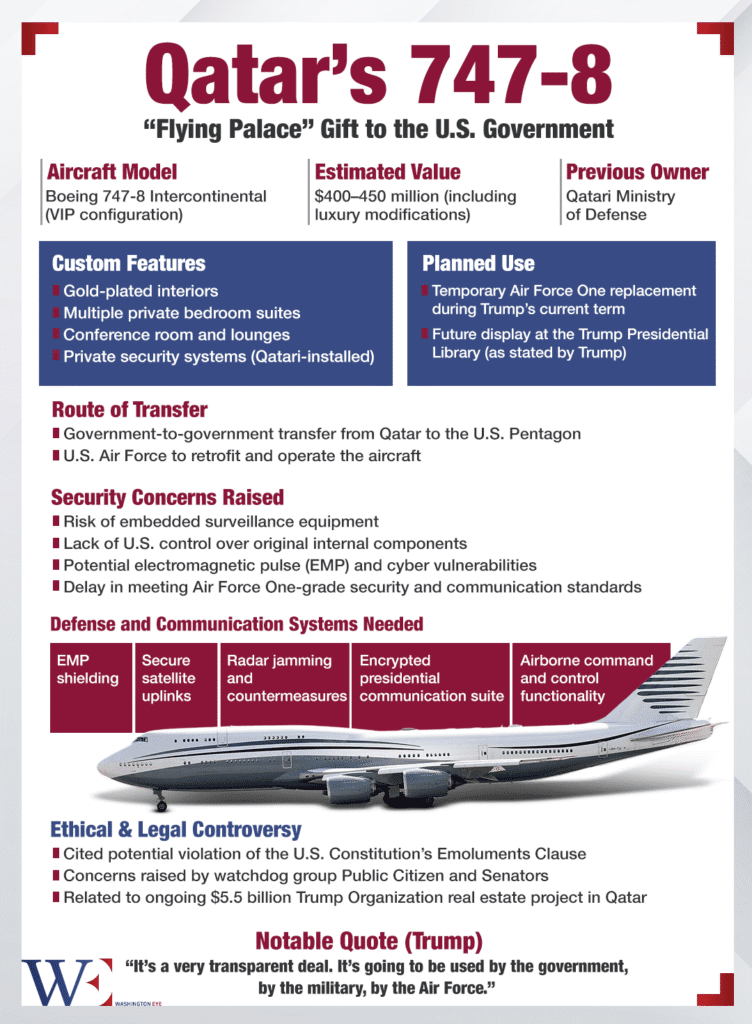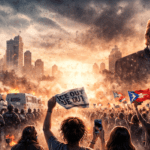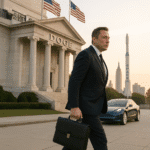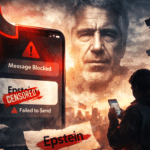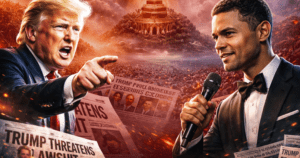When it was revealed in May 2025 that President Donald Trump was preparing to accept a lavish Boeing 747-8 aircraft from the Qatari royal family to serve as a temporary replacement for Air Force One, a wave of scrutiny followed. At an estimated value of over $400 million, the aircraft—described as a “flying palace”—comes with gold-plated interiors, private bedrooms, and lounges. While the Trump administration insists that the deal is legal and transparent, critics warn that it opens the door to serious national security concerns and sets a troubling precedent for foreign influence at the highest levels of U.S. government.
Trump’s Defense: “A Very Transparent Deal”
Speaking to reporters on May 11, 2025, President Trump defended the agreement by stating, “It’s a very transparent deal. It’s going to be used by the government, by the military, by the Air Force. And then it will be used for the Trump library.”
The aircraft, previously owned by Qatar’s Ministry of Defense, is set to be transferred through a government-to-government transaction with the Pentagon before being upgraded for presidential use. Trump reiterated that it would not be his personal property. “It’s not for me, it’s for the country,” he said, attempting to deflect criticism surrounding potential ethical breaches.
Critics Respond: “A Blatantly Unconstitutional Arrangement”
Despite the assurances, watchdog groups and constitutional scholars have raised red flags. Robert Weissman, president of Public Citizen, stated: “This is a blatantly unconstitutional arrangement. Foreign governments should not be providing multimillion-dollar gifts to American presidents—period.”
The concern is rooted in the Emoluments Clause of the U.S. Constitution, which bars federal officials from accepting gifts or payments from foreign states without congressional approval. While the administration maintains that the jet is being gifted to the U.S. government, not Trump personally, legal experts argue that the president stands to benefit politically and symbolically from the high-profile transfer.
Senators Sound the Alarm
Lawmakers have begun to question the logic and legality of the arrangement. Senator Chris Murphy (D-CT), a member of the Senate Foreign Relations Committee, posted on X: “This isn’t a good idea even if the plane was being donated to the U.S. government. But Trump GETS TO KEEP THE PLANE??? It’s simply a cash payment to Trump in exchange for favors. Just wildly illegal.”
Senator Chuck Schumer (D-NY) added: “Nothing says ‘America First’ like Air Force One, brought to you by Qatar. It’s not just bribery, it’s premium foreign influence with extra legroom.”
Their concerns are not limited to ethics. The aircraft, though manufactured by Boeing, was in foreign hands—raising significant issues for national security and presidential safety.
Air Force One: Why Security Matters
The current Air Force One, a VC-25A, is far more than a plane—it is a hardened airborne command post designed to survive missile attacks, cyber intrusions, and even a nuclear detonation. Retrofitting a previously owned Boeing 747-8 from Qatar to meet these standards is no small feat.
Air Force One expert and aviation author Tom Harris explains: “The Air Force One that we know today has layers of redundant secure communication systems, radar jamming tech, electronic countermeasures, and EMP shielding. It’s one of the most secure aircraft in the world.”
Qatar’s Business Ties to the Trump Organization
Compounding the unease is the confirmed real estate venture announced in April 2025: a $5.5 billion development partnership between the Trump Organization, Qatari Diar, and Dar Global. The project includes a Trump International Golf Club and Trump Villas in Simaisma, just outside Doha.
The deal is real and has been confirmed by multiple outlets, including Reuters and The Peninsula Qatar. While no direct evidence ties the aircraft gift to the business venture, critics say the timing creates the appearance of impropriety.
Richard Painter, former chief White House ethics lawyer under George W. Bush, commented: “When a foreign government gives a president a plane and his business is simultaneously expanding in that country, it’s not just bad optics—it’s dangerous.”
International Implications
Qatar is a close U.S. ally and hosts the Al-Udeid Air Base, one of the largest American military installations in the Middle East. However, it also maintains complex regional relationships, including with groups such as Hamas in Gaza. Israel has recently accused Qatar of enabling Hamas’s survival by funding Gaza’s civil services while political tensions over the war continue.
A senior Israeli official, speaking anonymously to the Times of Israel, said: “The U.S. president accepting a gift from Qatar sends the wrong message at the wrong time.”
The Lack of Oversight
Traditionally, any upgrade or replacement of Air Force One goes through a formal procurement process overseen by the Department of Defense, the U.S. Air Force, and subject to congressional appropriations. The current Air Force One replacement project—using Boeing 747-8s originally ordered under President Obama—is still underway, with delivery delays stretching into 2027.
In this case, critics argue that bypassing formal channels by accepting a foreign jet undermines those institutional safeguards. No formal hearings have yet been held, though Senator Murphy and others have called for an investigation.
An Unprecedented Flight Plan
Whether legal or not, accepting a luxury aircraft from a foreign monarchy while holding office—especially while one’s business ventures are expanding in that same country—represents a seismic shift in how presidential influence and foreign diplomacy intersect. The Trump-Qatar jet deal raises not just eyebrows but real questions about America’s vulnerability to foreign influence in a geopolitical climate defined by distrust and strategic competition.
As Robert Weissman of Public Citizen said plainly: “If this becomes the norm, then what’s next? A presidential yacht from the Saudis? A palace from the Chinese?”
Transparency, scrutiny, and a hard look at national security must now follow this aircraft wherever it flies.
